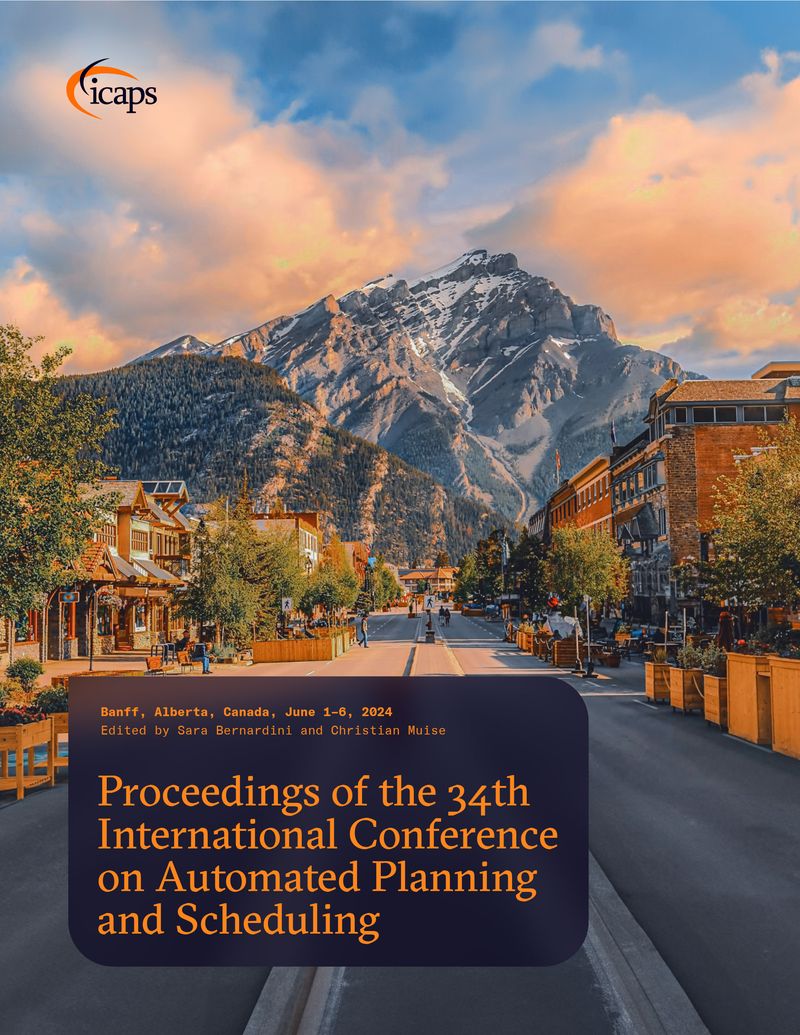Planning and Acting While the Clock Ticks
DOI:
https://doi.org/10.1609/icaps.v34i1.31465Abstract
Standard temporal planning assumes that planning takes place offline, and then execution starts at time 0. Recently, situated temporal planning was introduced, where planning starts at time 0, and execution occurs after planning terminates. Situated temporal planning reflects a more realistic scenario where time passes during planning. However, in situated temporal planning a complete plan must be generated before any action is executed. In some problems with time pressure, timing is too tight to complete planning before the first action must be executed. For example, an autonomous car that has a truck backing towards it should probably move out of the way now, and plan how to get to its destination later. In this paper, we propose a new problem setting: concurrent planning and execution, in which actions can be dispatched (executed) before planning terminates. Unlike previous work on planning and execution, we must handle wall clock deadlines that affect action applicability and goal achievement (as in situated planning) while also supporting dispatching actions before a complete plan has been found. We extend previous work on metareasoning for situated temporal planning to develop an algorithm for this new setting. Our empirical evaluation shows that when there is strong time pressure, our approach outperforms situated temporal planning.Downloads
Published
2024-05-30
How to Cite
Coles, A., Karpas, E., Lavrinenko, A., Ruml, W., Shimony, S. E., & Shperberg, S. (2024). Planning and Acting While the Clock Ticks. Proceedings of the International Conference on Automated Planning and Scheduling, 34(1), 95-103. https://doi.org/10.1609/icaps.v34i1.31465

